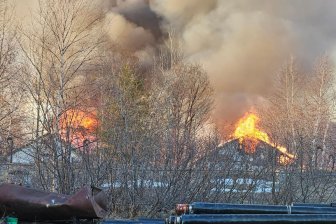TORONTO – Is Toronto prepared for a disaster akin to the unprecedented floods that have forced thousands of Albertans out of their homes?

Dr. Gordon McBean, a professor at the University of Western Ontario, said Toronto is not “as well prepared as we should be.”
But the city did learn lessons from Hurricane Hazel in 1954.
Afterward, the government of the Metropolitan Toronto Area restricted development in the Don Valley. The preservation of this land, McBean says, was a deliberate attempt to prevent flooding by allowing the land to absorb much of the excess water.
As well as not building along flood plains, McBean said, governments need to invest heavily in infrastructure.
“Much of our infrastructure in Canada is old, decaying and not being reinvested in at the rate that it should be,” McBean said.
“We’ve got to make investments now for the benefits of Canadians.”
Gallery: Clean up begins in Calgary after devastating floods.
A large problem, McBean said, is that governments are reluctant to invest heavily in infrastructure that may not immediately be used.
- Five-vehicle crash sends 5 people to hospital Saturday morning: Toronto police
- Ontario hospital workers awarded 6% pay increase, new agreement on agency nurses
- S&P/TSX composite closes up nearly 100 points, U.S. stock markets mixed
- ‘Cowardly option’: Family of woman killed in Toronto hit-and-run want lengthy sentence
Canada needs a “national dialogue” on emergency preparedness, McBean said – between engineers, scientists, educators and all levels of government.
In the meantime, he warned, climate change will make the bad weather worse.
“By 2050, if you think of the most extreme precipitation event that you’ve seen in your lifetime, that’s going to be happening twice as often,” he said.
McBean was among several experts in emergency planning gathered at the World Conference for Disaster Management conference at the Metro Toronto Convention Centre (MTCC) in Toronto on Monday. They warned climate change would bring about unprecedented crises – such as the flooding in Calgary or Hurricane Sandy – that cannot be planned for.
“I think what you have to do is you have to have good, strong basic plans. And then what you have to do is to train your leaders to able to be flexible, to improvise, to be creative and adaptable,” Regina Phelps from Emergency Management & Safety Solutions said.
So how ready is Toronto?
“The city has a very robust emergency plan,” said Loretta Chandler, the Director of Emergency Management for the city of Toronto. “If we had experienced a severe weather event like Calgary, the city would open our emergency operations centre where we would bring together all the key agencies and divisions to coordinate, and assess priorities.”
Chandler said the city works regularly with the Toronto Police Service, non-government organizations, the provincial government and various divisions within the city to routinely come up with plans for severe weather.



Comments